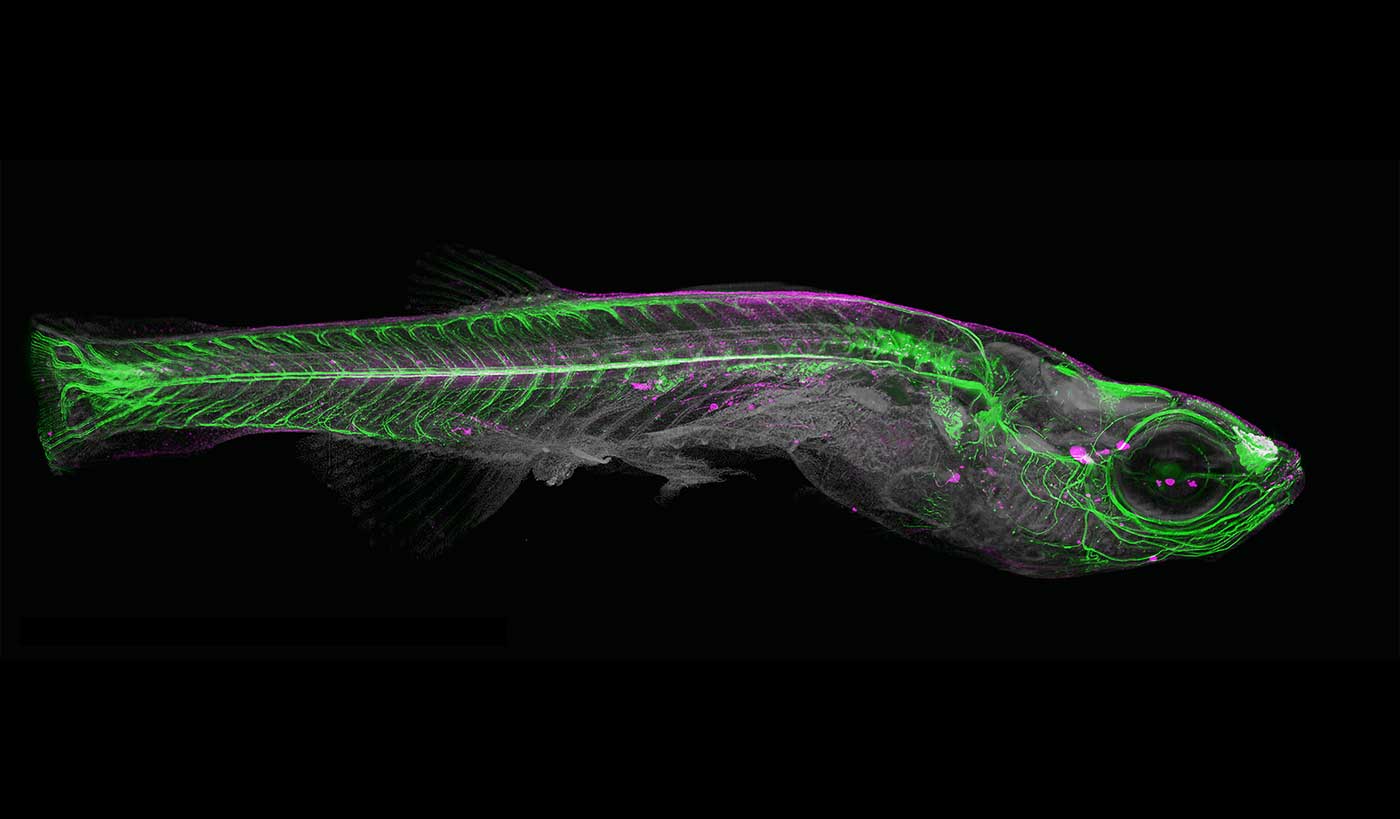
Creating New Ways to Find the Best Medicine
Analysis of the eyes and cranial nervous system of postlarval zebrafish. Photo credit: Marko Pende, Ph.D., MDI Biological Laboratory, courtesy of https://www.science.org/doi/10.1126/sciadv.aba0365
Discovering new medicines is a complex and risky endeavor. Today, for every 5,000 drugs discovered, only one will be approved to treat human disease. On top of that, the approval process takes an average of 10 years and the cost can top $2 billion dollars per drug.
To help reduce the time and expense involved in bringing new drugs to market, the MDI Biological Laboratory recently launched MDI Bioscience to provide the expertise and tools needed to improve drug discovery. The goal is to evaluate potential drugs much earlier in the discovery process before money is spent on costly studies.
About MDI Bioscience
MDI Bioscience combines world-class expertise and non-mammalian disease models for target-based in vivo profiling of new drug compounds in whole organisms. Our assays deliver important data on the efficacy and organ toxicity of early-stage molecules before the initiation of costly and time-consuming mammalian studies. We use state-of-the-art gene-editing approaches like CRISPR to develop custom knock-in and knock-out models and transgenic biosensors in zebrafish, zebrafish larvae, and C. elegans. Assessing these models with high throughput imaging allows for faster screening of a greater number of compounds than would be possible with conventional mammalian models.
Today, potential drugs are tested in cell culture to assess whether they have the potential to treat a disease. MDI Bioscience uses zebrafish embryos to compliment this approach and provide a more complete understanding of a drug’s potential benefit or toxicity early in the discovery process.
Using zebrafish offers a number of advantages when compared to the current approach of testing isolated cells in a dish. As living organisms, zebrafish embryos have intact organ systems, and changes to organs, cells, and behavior can be easily observed. Additionally, zebrafish share 85% of the genes known to cause human disease and their genomes can be edited to create models of human diseases. Testing in disease models is critical for assessing whether new drugs can repair or reverse disease.
“Zebrafish allow us to make informed decisions earlier, ensuring that therapies with the greatest chance of benefiting patients receive the right priority,” says Jim Strickland, Director of MDI Bioscience. “This new approach has the potential to change the way new drugs are developed and reduce the number of drugs that fail after significant time and money have been invested,” said Strickland.
“Medicine has a pressing need for tools to make drug development more efficient and less wasteful so that we can get new medicines to market more quickly,” said Hermann Haller, M.D., president of the MDI Biological Laboratory. “MDI Bioscience is uniquely positioned to meet that need.”